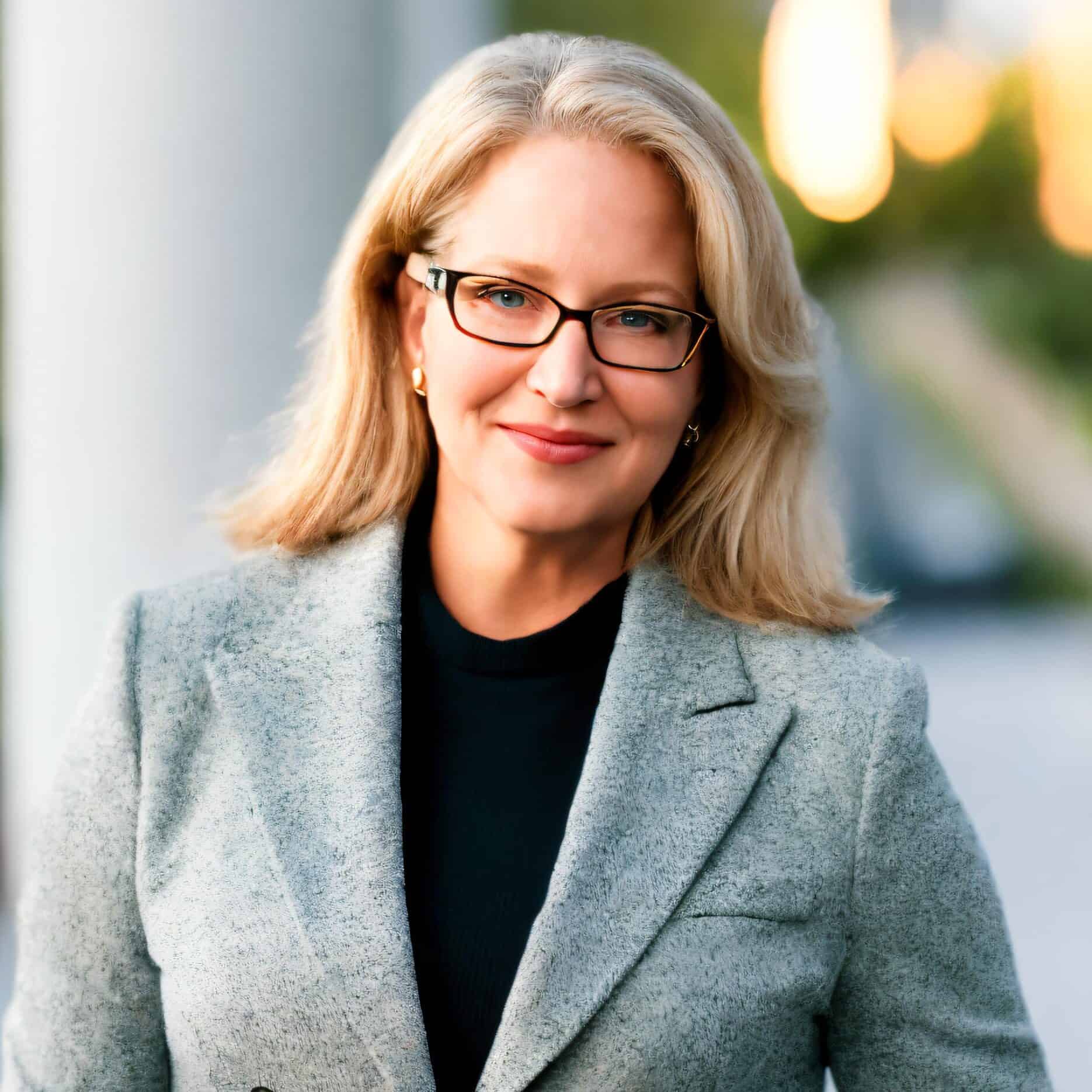As firms navigate a tariff tsunami and reshoring renaissance, they’re discovering new instruments and techniques—some AI-powered—to handle the problem.
The drive to globalize that started within the years after World Conflict II has reached an inflection level. President Trump’s “Liberation Day” tariff plans have triggered a series response that may have enduring repercussions for worldwide commerce and the motion of capital.
Whereas unprecedented of their scale—and at present on pause—Trump’s actions didn’t come out of nowhere. Reshoring has been a pattern for the reason that early 2000s. The decline of commercial manufacturing in each the US and Europe fuelled opposition to commerce liberalization, leading to rising duties and the choice by many firms to relocate manufacturing services again to their house or neighboring international locations. The brand new protectionism won’t halt world commerce, however globalization in its present kind “might have now run its course,” HSBC Chairman Mark Tucker prompt on the financial institution’s current world funding summit. It additionally reinforces the shift towards regional provide chains and resilient manufacturing places.
Dealing with Evolving Commerce Dynamics
Banks play a vital function within the $9.7 trillion commerce finance ecosystem and their experience shall be essential in serving to firms navigate market fluctuations and an unsure commerce finance panorama.
“Given the success of banks’ commerce finance divisions over the previous few quarters, a number of banks elevated their budgets for this 12 months,” notes Frank Tezzi, vp and head of Commerce & Provide Chain at CGI. “Nevertheless, many banks waited on spending their budgets till after the election. Within the new 12 months, now we have seen a dedication to proceed with this elevated expenditure, notably given the distinctive function commerce banks can play supporting their prospects in a quickly altering geopolitical local weather.” BNP Paribas’s slogan, “the financial institution for a altering world,” helps clarify why its world head of Commerce Options, Jean-François Denis, is sanguine about present developments.
“Banks are all the time confronted with altering conditions,” he says, “whether or not it’s geopolitics, main occasions, or ESG subjects. However I feel for all enterprise and commerce finance particularly, our job is to accompany our shoppers by way of mitigating their dangers. We accompany our shoppers which are redirecting their flows. Whether or not it’s nearshoring or diversifying, quite a lot of issues will be de-risked.” ING views commerce finance as certainly one of its pillars of progress and is seeking to proceed to spend money on its commerce merchandise, individuals, and techniques within the international locations the place it operates. In step with that technique, it continues to assist shoppers executing a sustainability transition with green- and sustainability-linked commerce options.
“We see progress potential in numerous sectors like vitality, the place we see an elevated demand from shoppers in commerce, provide chain, and receivable finance options,” says Ronald Supheert, managing director-World Lead Commerce Finance Companies at ING. Final 12 months, ING’s commerce unit exceeded €2 billion in quantity mobilized to assist shoppers making inexperienced or sustainable transitions.
Looming commerce wars and the implementation of upper tariffs can have the best impression on shoppers which have massive commerce volumes with the US, Supheert expects, however he additionally has religion of their potential to satisfy their progress targets by different options and in different markets.
Because of current provide chain disruptors just like the Covid-19 pandemic and the Russia-Ukraine conflict, banks have already intensified their concentrate on working capital optimization options that assist shoppers safe provides effectively, says Eva Rubio Garcia, head of worldwide transaction banking at BBVA.
“There’s an emphasis on being ready for shopper treasury wants, notably relating to instantaneous funds and knowledge,” she says. “Following a interval of survival throughout Covid, firms are actually investing in effectivity, rethinking monetary flows, and optimizing the money conversion cycle.”
The evolving tariff panorama poses an actual operational and monetary danger, and finance groups will want higher visibility, quicker decision-making, and stronger state of affairs planning in the event that they wish to adapt. Commerce wars require agility and a greater grasp of commerce finance applications that may release working capital. Working capital options akin to provide chain finance (SCF), dynamic discounting, and receivables finance can assist counter the impact of tariffs on the price of capital.
Tariffs trigger instability, threatening provide chains and enterprise continuity. SCF mitigates the antagonistic results of disruptive occasions by unlocking working capital trapped within the provide chain. Orbian, one of many first firms to develop an SCF answer, presents a bank-agnostic mannequin that’s mirrored in current choices together with Specific SCF, Fastened Fee discounting and Flex Pay, a Fee with Phrases answer.
The largest pattern of the final two years, says Orbian Managing Director Markus Schiffers, is Fee with Phrases, which permits working capital optimization with out requiring procurement to barter fee phrases with suppliers. Fee with Phrases permits suppliers to pay suppliers on the scheduled date whereas immediately defending the customer’s liquidity by extending their fee obligations. It permits patrons to handle their money outflow extra predictably, as they’ve a set schedule for funds to Orbian. This predictability helps with money movement forecasting and total monetary planning. This safeguards the customer’s money movement and enhances working capital, all with out requiring provider participation.
“You want an answer that could be very quick in enhancing working capital for patrons,” says Schiffers. “To roll out provide chain finance to enhance working capital takes 18 months or longer; Flex Pay is efficient inside two months. The mix of each options in a single program achieves quickest working capital enchancment at lowest value to patrons.”
Shifting quick isn’t all the time attainable in real-life provide chains, nonetheless, because it takes time to determine new factories, a posh course of that entails excessive prices, quite a few operational challenges, and potential regulatory and compliance points. Many firms which have adopted a “China Plus One” technique, diversifying their provide chains by establishing manufacturing hubs exterior of China, shall be holding off from additional relocation choices till after the mud settles.
Whereas China faces the best tariffs at 145%, different Asian economies closely depending on exports to the US are additionally considerably impacted. Vietnam’s garment business faces a 46% responsibility and Bangladesh’s textile sector a 37% tariff. African nations with sturdy US exports are additionally feeling the ache, with probably the most punitive duties levelled at Lesotho (50%), Madagascar (47%), South Africa (30%), and Côte d’Ivoire (21%).
Regional Shift
International locations on the receiving finish are scrambling for tactics to current a united entrance. The Trump tariffs have led to the primary financial talks in 5 years between South Korea, China, and Japan, with the purpose of constructing regional commerce simpler, they usually seem prone to improve commerce amongst international locations within the World South.
Between 2007 and 2023, South-South commerce greater than doubled from $2.3 trillion to $5.6 trillion. Daniel Soloway, head of Commerce & Working Capital, Europe & Americas and world head of Distributor Finance at Customary Chartered, believes geopolitical uncertainties and a destabilized tariff panorama will cement the significance of latest commerce hubs.
“The World Commerce Group expects world commerce to rise by about 3% in 2025,” he notes. “A lot of that’s pushed by intra-emerging market commerce, by which I imply World South to World South commerce. We consider China, India, and ASEAN will proceed to be the biggest contributors for world progress over the subsequent decade.”
Customary Chartered is hoping to facilitate the shift. “We now have sturdy and in depth groups on the bottom in Dubai, China and in Singapore,” says Soloway, “so we’re capturing new alternatives in these intra-Asia trades in ASEAN and Center East community corridors.”
“Whereas we consider that tariffs will have an effect on progress in sure corridors, we consider it will likely be offset by progress in different corridors that we are able to seize.”
Daniel Soloway, Head of Commerce & Working Capital, Customary Chartered
Asia is house to 18 of the 20 fastest-growing corridors and 13 of the 20 largest, in accordance with the McKinsey World Institute. With a presence in a lot of these markets, Soloway says, Customary Chartered is properly positioned to capitalize on altering commerce flows. From a logistics perspective, planning shall be key. Other than near-shoring and diversified provide chains, logistics networks have to be versatile sufficient to adapt to new customs boundaries and margins enough to soak up further prices.

“Surprising penalties in logistics are affecting enterprise operations,” warns Jukka Kuusala, head of Commerce Finance at Danske Financial institution. “Tariff changes have turn into advanced. What was as soon as a single tariff for equipment now varies for parts, akin to aluminum and chrome steel components. This complexity is inflicting logistics issues as customs authorities battle to handle imports and exports effectively, resulting in cargo delays.”
More and more, export/ import firms in Europe are requesting extra safety for US transactions, Kuusala notes. “Whereas European firms sometimes use financial institution ensures to safe contractual obligations, US firms want standby letters of credit score. This distinction has led to elevated demand for advisory providers as firms navigate these necessities.”
Corporations might want to stay adaptable to uncertainties and get your hands on commerce finance options to assist them handle steadiness sheet pressures and dealing capital. Foreign money mismatches are additionally a risk; Customary Chartered presents a digital overseas trade answer, SC PrismFX, to deal with these points.
Navigating Uncertainty
Purchasers are searching for steerage on navigating present uncertainty, potential tariffs, and geopolitical points, Soloway notes. They’re additionally involved with sustaining margins and value elasticity and managing working capital metrics.Purchasers are searching for steerage on navigating present uncertainty, potential tariffs, and geopolitical points, Soloway notes. They’re additionally involved with sustaining margins and value elasticity and managing working capital metrics.

Along with its Treasury Management Boards, which carry collectively company treasurers with Customary Chartered’s in-house specialists, the Customary Chartered Commerce Institute, launched in 2024 and accredited by the London Institute of Banking & Finance, presents coaching applications to assist shoppers by these modifications.
Helpful instruments embody commerce finance platforms that centralize and digitize commerce finance operations, permitting firms and their banks to effectively handle devices like letters of credit score, ensures, and collections. APIs allow seamless integration between completely different techniques, such because the financial institution’s core banking system, the shopper’s ERP system, and third-party providers. AI and machine studying are actually getting used for doc processing, danger evaluation, and compliance: automating and forecasting, amongst different capabilities.
AI is rising as a vital instrument for streamlining tariff classification, responsibility calculation, and customs documentation, notes Michelle Bonat, chief AI officer at AI Squared, together with monitoring commerce laws, offering personalised alerts, and powering chatbots for tariff inquiries.
“Banks can combine AI into monetary planning instruments, serving to companies to run what-if simulations on how tariff modifications (e.g., Brexit, US-China tariffs) may have an effect on prices or provide chains,” says Bonat. “AI can recommend alternate provide chain routes or sourcing choices based mostly on tariff buildings, often achieved by using predictive analytics, optimization algorithms, and AI-based simulation fashions.”
The worldwide commerce surroundings is altering, and companies should adapt. However the plethora of latest instruments and options means that by embracing innovation, searching for knowledgeable steerage, and proactively managing dangers, they will nonetheless discover methods to thrive.
Source link
#Sea #Uncertainty


